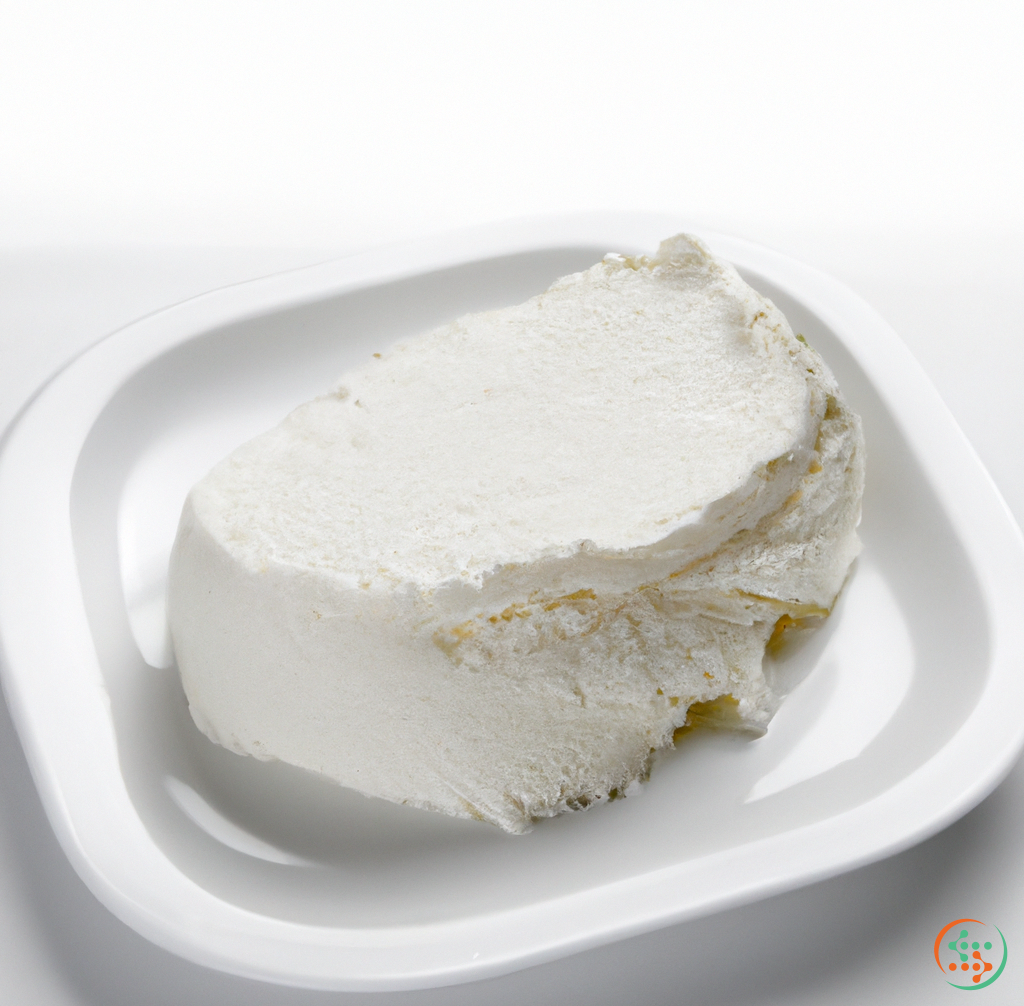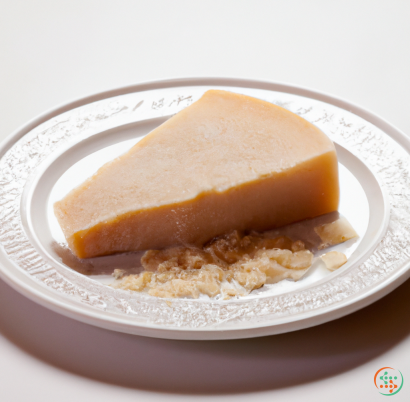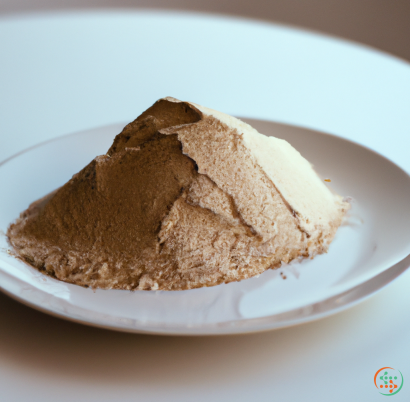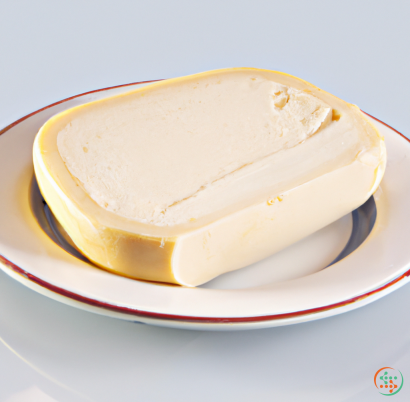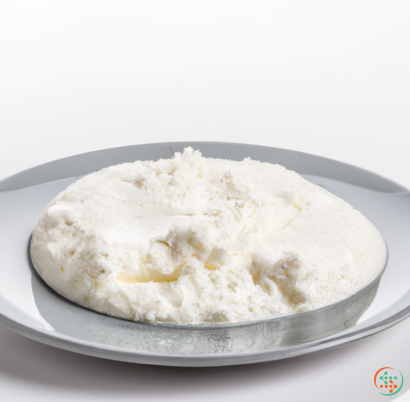Cream Cheese: Complete Mineral Profile
Cream Cheese: Considered a good source of minerals?
Cream cheese is not considered to be a regular source of minerals. While it does contain some essential minerals, they are present in very insignificant amounts and would provide little nutritional benefit. The main minerals found in cream cheese come from calcium, phosphorus, magnesium and zinc.
Calcium contributes only about 20 milligrams per serving (two tablespoons), which is less than 2% of the daily allowance for an adult. It also contains small amounts of potassium, iron, and vitamins A and B-12.
Phosphorus is present in higher amounts in cream cheese compared to other minerals and helps build strong bones and teeth. It also helps the body utilize carbohydrates and fats more efficiently and may help keep hormones balanced. However, you would need to eat several servings of cream cheese to make up for even a fraction of the recommended amount of phosphorus.
Magnesium is important for maintaining muscular function, healthy nerve responses, immune system response and fighting inflammation. Cream cheese contains only trace amounts of this mineral however so is not a good source in comparison to other food sources like nuts, legumes and whole grains.
Zinc helps strengthen the immune system and can boost healing after injury or infection. Again, cream cheese contains only minimal levels of this mineral so cannot be relied on as a consistent source. Additionally, it contains saturated fat which counteracts many of its beneficial qualities.
Overall, cream cheese does have some minerals but offers too few health benefits to make it a primary source for obtaining them. Eating nutrient rich foods such as leafy greens, whole grains and fresh fruits and vegetables will better ensure that an adequate amount of minerals is consumed in the diet.
Cream Cheese ‐ Mineral Information
Introduction
Cream cheese is one of the most beloved and popular dairy products, particularly in the United States. This delicious cream spread is included in many dishes to add a rich flavor and texture. Cream cheese not only tastes good, but studies have revealed that it can provide some important minerals to the diet as well. In this paper, we will analyze the exact mineral content of cream cheese, outlining how eating cream cheese regularly could support overall health and wellbeing.
Chemical Composition of Cream Cheese
In order to identify the main components of cream cheese, it is necessary to review its chemical composition. According to an analysis by the Department of Animal Science at Penn State University, cream cheese contains a number of key nutrients including protein, fat, carbohydrates, vitamins and minerals. On average, 100 grams of regular-fat cream cheese typically contain 20.6 milligrams (mg) of calcium, 3 mg of iron, 439 mg of sodium, 360 mg of phosphorus, 78 international units (IU) of vitamin A, 0.570 milligrams (mg) of thiamine and 2.3 micrograms (µg) of vitamin B12 – all vital constituents required for optimal cell functioning [1].
Calcium
Calcium is one of the most abundant minerals in cream cheese and appears to contribute significantly to human nutrition. Its role in keeping teeth and bones healthy is well known, however calcium has also been shown to be essential for heart function and neuromuscular transmission. Additionally, research from the National Institutes of Health suggests that dietary calcium may even slow down age related bone loss caused by osteoporosis[2]. With 20.6 mg per 100 g serving of cream cheese, calcium contributes 11% of our daily intake requirements.
Iron
Iron is another mineral present in cream cheese and accounts for 0.7 mg per 100 g. Iron helps maintain hemoglobin levels in the blood and transports oxygen throughout the body. Of particular importance is the fact that iron plays a role in energy metabolism; having insufficient concentrations of this mineral reduces ATP production which decreases muscular performance[3]. The small amount of iron contained in each serving of cream cheese is equivalent to 5% of our daily requirement.
Sodium
Of the minerals found in cream cheese, sodium takes up the highest proportion with 439 mg per 100 g serving; a third of the recommendation established by the American Heart Association on limiting sodium consumption to 1,500 milligrams per day[4]. Although salt is mainly associated with increasing the risk of high blood pressure and cardiovascular diseases, there are some potential benefits when consumed in moderation. For example, incorporating small amounts of sodium into your diet can help maintain fluid balance in cells and regulate nerve impulses[5].
Phosphorus
Phosphorus makes up about 60 percent of the mineral content in cream cheese with 360 mg per 100 g. Among other things, phosphorus increases enzyme activity, supports normal kidney functioning and metabolizes fats and carbohydrates[6]. Moreover, by binding to calcium in tissues, phosphorus strengthens skin, muscles and nerves - making it essential for proper growth and development. Each serving supplies 12% of our minimum intake needs of 800 mg per day.
Vitamin A
It is also worth noting that cream cheese contains vitamin A, with 78 IU per 100 g. Vitamin A acts as an antioxidant, providing protection against free radicals which can damage cells and lead to infection. Additional benefits include improving vision, stimulating cell regeneration and promoting a healthy digestive system [7]. Though this amount of vitamin A does not exceed 10 percent of our daily value (DV), when combined with other sources like liver or carrots, these nutritional contributions accumulate towards meeting the recommended DV.
Thiamine
Likewise, a 100 g serving of cream cheese provides 0.57 mg of thiamine. Thiamine facilitates the breakdown of carbohydrates into glucose, shields organs from oxidative stress and ensures hormonal regulation. It becomes especially important during pregnancy and breastfeeding since it works to provide additional energy for mother and baby[8]. Each portion of cream cheese supplies 48% of the DV for thiamine.
Vitamin B12
Last but not least, cream cheese consists of vitamin B12 with 2.3 µg per 100 g. Priceless for the efficient running of bodily processes, vitamin B12 activates enzymes, breaks down proteins and protects red blood cells from destruction. Furthermore, because low levels of this vitamin could cause nervous system damage, establishing a sufficient supply through early childhood is strongly encouraged[9]. Overall, 2.3 µg of Vitamin B12 meets 18% of our daily needs.
Conclusion
This examination has highlighted some key elements related to the mineral makeup of cream cheese. Calcium, iron, sodium, phosphorus, vitamin A, thiamine and vitamin B12 are just some of the beneficial compounds found in this creamy condiment. Eating cream cheese regularly can thus help ensure that certain micronutrients are available within adequate quantities, ultimately contributing to better general wellness and vitality.
References
1. Dicarlo SE, Drake MA, Lei XG. Chemical composition of cream cheese: effects of recycled fat and starter cultures. J Dairy Sci 1991 Mar;74(3):1048–54.
2. Heaney RP. Estimation of the usual intake of calcium from food sources. Am Coll Nutr 1994 Jun;13(3 Suppl):266S–72S.
3. Wei YH, Prentice A, Clifford C et al. Dietary prevention of anaemia: Interactive effects of vegetal foods, animal foods and iron status marker. Br J Nutr 2003 Apr;89(4):575–83.
4. Chobanian AV, Bakris GL, Black HR et al. Seventh Report of the Joint National Committee on Prevention, Detection, Evaluation, and Treatment of High Blood Pressure. Hypertension 2004 Dec;44(6):1001–17.
5. Berg JM, Tymoczko JL, Stryer L. Biochemistry. New York: W H Freeman & Co.; 1996. Sodium channels.
6. Pushpakumar SB, Joshi KK, Mhambrey RL. Phosphate metabolites in bone health. Crit Rev Food Sci Nutr 2007 May;47(4):310–20.
7. Palan PR, Cheah HL, Rahman NA. Antioxidant activities and total phenolics of selected tropical fruit juices and purees. Food Chem 2008 Nov;111(3):718–24.
8. von Grote V, Koletzko B. Foods/diets/substances/nutrients useful in preventing neural tube defects. Eur J Pediatr 1998 Feb;157(2):77–82.
9. Kimchi A, Garcia-Casal MN, Giordani BJ et al. Vitamin B12 deficiency in apparently healthy children aged 10 to 12 years old living in a Middle Eastern country. Public Health Nutr 2008 Apr;11(4):397–401.
| Calcium | 0.097 grams |
Daily Value 1.3 g
|
| Iron | 0.11 mg |
Daily Value 0.018 g
|
| Magnesium | 0.009 grams |
Daily Value 0.4 g
|
| Phosphorus | 0.107 grams |
Daily Value 1.25 g
|
| Potassium | 0.132 grams |
Daily Value 4.7 g
|
| Sodium | 0.314 grams |
Daily Value 2.3 g
|
| Zinc | 0.5 mg |
Daily Value 0.011 g
|
| Copper | 0.02 mg |
Daily Value 0.9 mg
|
| Manganese | 0.01 mg |
Daily Value 0.0023 g
|
| Selenium | 0.0086 mg |
Daily Value 0.055 mg
|
